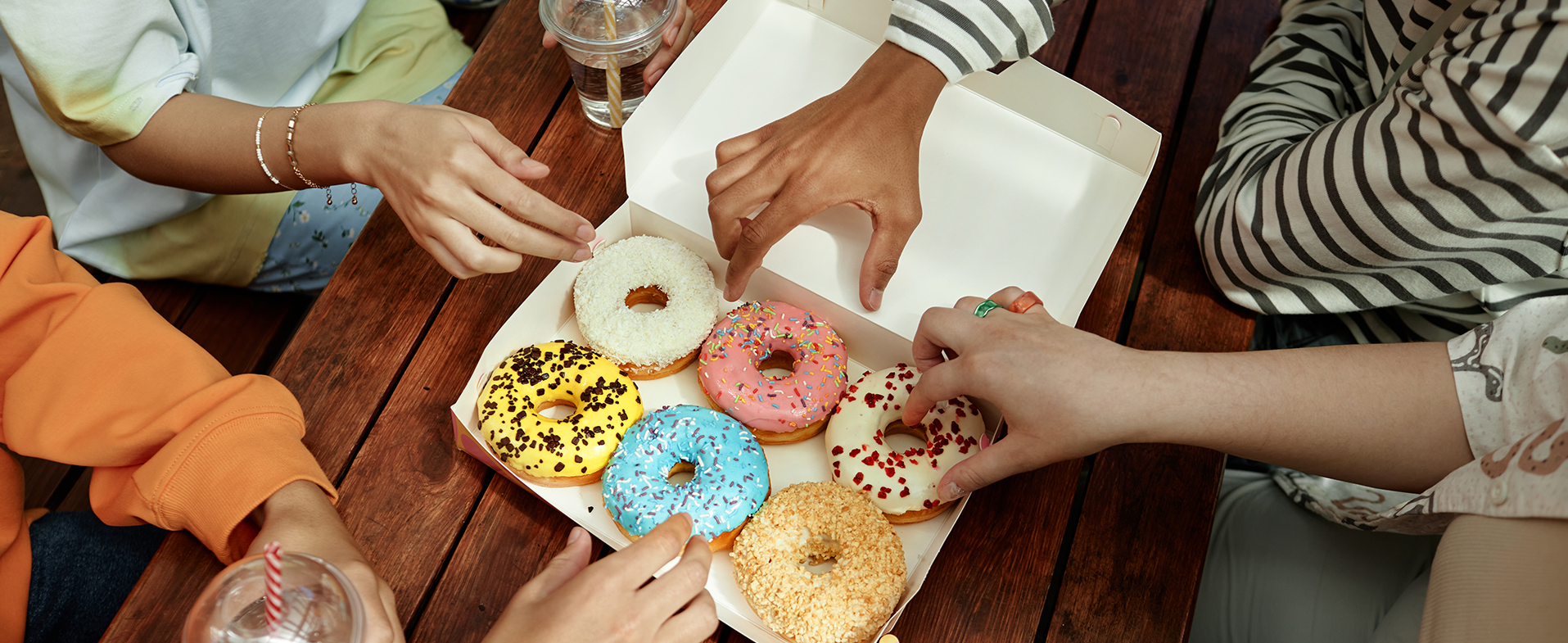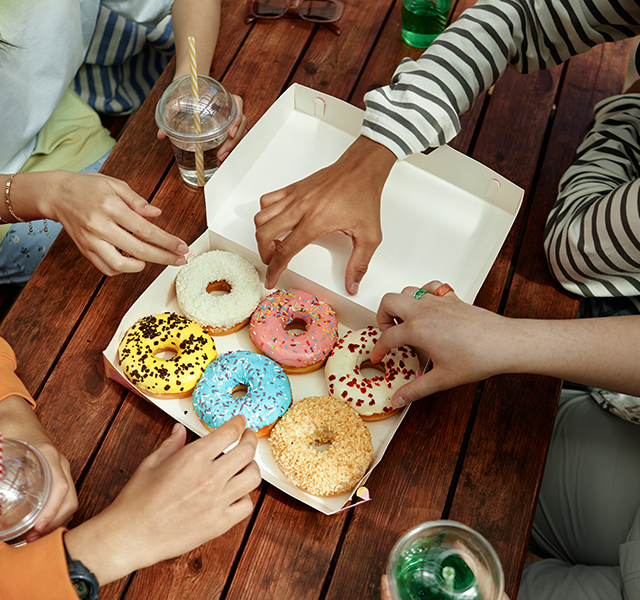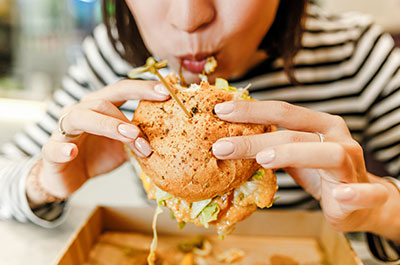As a nation, you might say we’re a bit obsessed with sugar. Whether we’re eating too much of it, trying to avoid it or using substitutes to replace it, the sweet stuff is a hot topic.
“The majority of the US population consumes too much added sugar,” says Halle Saperstein, RD, clinical dietitian at Henry Ford Health. “And it can become almost like an addiction, where our body craves more of it.”
What’s So Bad About Sugar?
The negative health effects of consuming too much sugar are well documented. Diets that are high in added sugars increase the risk of numerous conditions, including:
- Diabetes
- Fatty liver disease
- Heart disease
- High blood pressure
- Inflammation
- Obesity
How Much Sugar Is Too Much?
There’s a big disconnect between how much sugar we should consume and how much we actually do. The American Heart Association sets guidelines for added sugar intake at 25 grams per day for women and 36 grams for men.
According to the Centers for Disease Control (CDC), most Americans are consuming more than twice the recommended amount every day. These numbers reflect not just our insatiable sweet tooths, but also the hidden sources of sugar in our food.
“It’s easy to consume much more sugar than you think you are because sugar is being added to so many things,” says Saperstein. “It’s even added to McDonald’s French fries.” You’ll also find it hiding in other non-sweet foods such as salad dressing, pasta sauce and whole wheat English muffins.
Added Sugar vs. Natural Sugar
Sugar may be everywhere, but not all of it has the same effect on your body, your weight and your overall health.
“Different types of sugar have different glycemic index levels,” says Saperstein. “The higher the level, the quicker the sugar is metabolized and the faster your blood sugar rises (and later crashes).” High-fructose corn syrup—the main sweetener in most sodas—ranks high on the glycemic index.
When you eat sugar that occurs naturally in a food (such as a piece of fruit) the effect is very different than eating a piece of candy. “The soluble fiber and other nutrients in fruit help slow the breakdown and absorption of sugar,” says Saperstein. “In other words, eating fruit leads to more of a gradual release of sugar and can reduce a sugar spike.”
“When sugar is added to a food, it provides no additional nutritional value,” says Saperstein. She recommends looking for foods that contain no added sugars whenever possible.
How Liquid Sugar Affects the Body
The only thing worse for you than eating a lot of added sugar is drinking it. “Liquid sugar is isolated sugar,” says Saperstein. “When you drink a sugar-sweetened beverage, it gets absorbed very quickly because there’s nothing else to slow it down.”
Sodas, energy drinks, fruit drinks, iced teas and other sugary beverages are the number one source of added sugars in American diets. And just one of these drinks can put you over the recommended intake of added sugar per day. For example, a 12-ounce can of Coke contains 39 grams or about 10 teaspoons of added sugar (in the form of corn syrup).
“Drinking sugar has a greater impact on your blood sugar,” says Saperstein. “Which is why it has been shown to disrupt liver metabolism and increase insulin resistance—both of which increase your risk of diabetes.” In fact, research has found that higher intake of sugar-sweetened beverages is directly associated with higher risk of developing Type 2 diabetes.
Liquid sugar not only causes a quick and powerful surge in blood sugar, it also stimulates the release of brain chemicals like dopamine and serotonin. These feel-good chemicals set us up for a cycle of craving and reward that makes us want to consume even more sugar.

Meet With A Dietitian
Tricks for Reducing Your Sugar Intake
Controlling your sugar intake can be tricky, and it requires paying attention. “You need to read ingredient lists and nutrition labels on all the packaged foods you buy,” says Saperstein. The category of added sugars will clearly list how many grams of sweet stuff are in each serving.
“Everything—even sugar—is okay in moderation,” she says. “For some people, trying to avoid sugar completely just increases cravings for it.” A better approach is to consume sugar in ways that absorb more slowly and cause less disruption to your blood sugar levels.
Cut down on added sugars where you can by:
- Choosing savory foods (breads, sauces, condiments) with the lowest amount of added sugar
- Controlling portion sizes of sweet treats (have a cookie, not a box of cookies)
- Limiting packaged and prepared foods in favor of food you make yourself from real ingredients
- Replacing sodas with unsweetened sparkling water
The bottom line is that eating your sugar is better for you than drinking it. But the best thing for your health is to curb the overall amount that you consume—in any form.
Reviewed by Halle Saperstein, RD, a clinical dietitian at Henry Ford Health.



